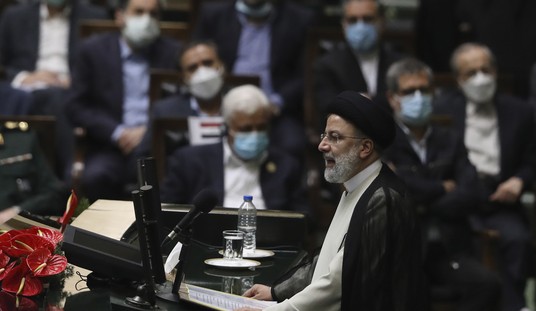Next month will mark the beginning of the end of Julian Assange’s jail term for skipping bail and the start of a four-week extradition hearing to determine if the Wikileaks founder can be turned over to the United States to stand trial on a variety of charges. But if Assange’s legal team gets their way, the entire thing will be a waste of time. They plan to go before the judge and claim that extradition isn’t even on the table because of certain provisions in the extradition treaty between our two countries. (Reuters)
Lawyers for Julian Assange said on Thursday they will argue that the WikiLeaks founder cannot be sent from Britain to the United States to face spying charges because a treaty between the two countries bans extradition for political offences.
Assange, 48, faces 18 counts in the U.S. including conspiring to hack government computers and violating an espionage law. He could spend decades in prison if convicted.
At London’s Westminster Magistrates’ Court, his lawyer Edward Fitzgerald outlined some of the evidence Assange’s team will put forward at the full extradition hearing due to start on Feb. 24, saying they could call up to 21 witnesses to testify.
This is an interesting approach, but it’s tough to see how their argument holds water. We’ve discussed the U.S-UK extradition treaty here before and it’s mostly drawn up in fairly clear language. Assange’s attorneys are referring to article 4(3) in the treaty which states that “extradition shall not be granted if the competent authority of the Requested State determines that the request is politically motivated.”
Unfortunately, there really isn’t a good benchmark as to how one specifically defines a “political offense” under international law, nor is one offered in this treaty. It simply states that the executive branch in the requested nation is the competent authority to determine if the request is politically motivated. In the United States that would be the White House. In Great Britain, it’s the Prime Minister and his/her cabinet. The treaty specifically states that the judicial branch is not the competent authority, so appealing to the courts isn’t really an option.
So at this point, the person to answer the question raised by Assange’s lawyers is actually Boris Johnson in consultation with his cabinet. And we’ve gotten some hints from BoJo in the past as to how he feels about it.
It’s only right that Julian Assange finally faces justice. Credit to @foreignoffice officials who have worked tirelessly to secure this outcome.
— Boris Johnson (@BorisJohnson) April 11, 2019
By what standard would this be considered a “political offense” to begin with? Assange is looking at 48 charges including conspiracy to hack government computers and espionage. Not exactly the sort of charges one simply brings in a fit of pique.
Beyond that, the only other requirements to create a valid case for extradition are pretty basic. It must be for offenses that are recognized as serious crimes in both nations, carrying a potential penalty of at least one year in prison. If the requested country doesn’t invoke the death penalty for the crime, the requesting country must take capital punishment off the table before the requested country will assent. (I don’t think anyone was talking about putting a needle in Assange’s arm over this.)
With all that in mind, it seems as if this should be a fairly easy call for both BoJo and the court to make. But it may only seem that way. As I said above, this could all come down to Johnson’s feeling on the matter and the amount of political pressure he’s under at home. It would create a huge dustup between our two nations if he pulled the plug, but he’s within his rights to accuse Washington of bringing politically motivated charges and keep Assange out of our hands.
It’s worth keeping in mind that over the course of this treaty, the UK has requested extradition 58 times and we’ve never denied them once. On the other hand, the United States has asked the Brits to hand over 130 people and they have refused ten times. This isn’t a sure thing yet by any means.








Join the conversation as a VIP Member